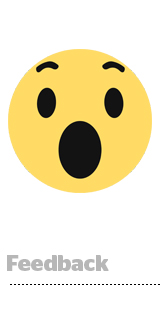
Mark Zuckerberg expects people to spend less time in the news feed once Facebook throttles the organic reach of publisher content.
That change will lead to less inventory at higher prices, said James Douglas, SVP and executive director of social media at IPG-owned Society Agency.
After Facebook announced plans Thursday to deprioritize public content from publishers and brands in favor of postings from friends and family, Douglas’ team examined a few big accounts for evidence of the algorithm change. Sure enough, the cost per click and CPMs had increased slightly over the past couple of days.
“That’s just the reality of throttling ad inventory,” Douglas said.
Zuckerberg expects users’ time spent and engagement on the platform to decline as a result of the change. Facebook’s stock fell around 4% Friday after the news hit.
The move, which will roll out over the next few months, is meant to foster more meaningful interactions between people. Facebook has been roundly criticized over the past year for distributing fake news and negatively affecting its users’ mental health.
But throttling the organic reach of business content in the big blue app will also change the dynamics of supply and demand.
Although Facebook abounds with paid channels where advertisers can still shell out for sponsored placements, setting up pages and using the news feed for distribution hasn’t been a viable strategy for some time.
“And less time spent on the platform presumably means less inventory for advertisers to work with, whether that’s paid or unpaid,” said Pivotal analyst Brian Wieser.
A drop in what Douglas referred to as “secondary placements,” such as those within Instant Articles, could also reduce the amount of inventory available. Facebook had wooed publishers to Instant Articles with the promise of increased engagement in return for publishing their content directly on its platform. That incentive just flew out the window.
“If that inventory declines, all inventory goes into the news feed,” Douglas said. “Although that doesn’t change the fact that a brand can still pay to be part of the feed experience, if you have less inventory, you have more competition in the auction.”
But maybe there’s a silver lining. If users are more engaged when spending time on Facebook, rather than mindlessly scrolling, they might be more receptive to the ads they’re exposed to, which would be worth paying more for.
“‘Lean-in’ interactions are inherently better for brands and, frankly, should or will cost more than passive experiences because, in the end, the return on ad spend will be greater,” said Greg James, chief strategy officer at Havas Media USA. “And while brands can still pay to play in that space, the notion that they themselves might create meaningful content or ways of meaningfully interacting with consumers should be a good ambition.”
And there is even a possibility that Facebook’s change could boost supply and therefore decrease pricing, said Brittany Richter, head of social media and Dentsu performance agency iProspect.
“Qualitative consumer feedback is that they miss seeing more content from family and friends,” she said. “So, this could lead to more people returning to the platform more frequently and staying for longer sessions, increasing supply.”
It’s important to note that although the algorithm change may give grandma and baby pics the potential for more reach than a national publisher, it doesn’t impact the distribution of ads in the news feed.
The dynamics of Facebook’s ads auction will remain the same, and ad impressions will be delivered as per usual to the user Facebook deems the most valuable recipient.
This post was syndicated from Ad Exchanger.

More Stories
How The Sports Bra Sold Its Game Plan to the World
The Trade Desk’s OpenPass Adds Rewards As It Pursues Wider Adoption
NZME’s work recognised at INMA Global Media Awards